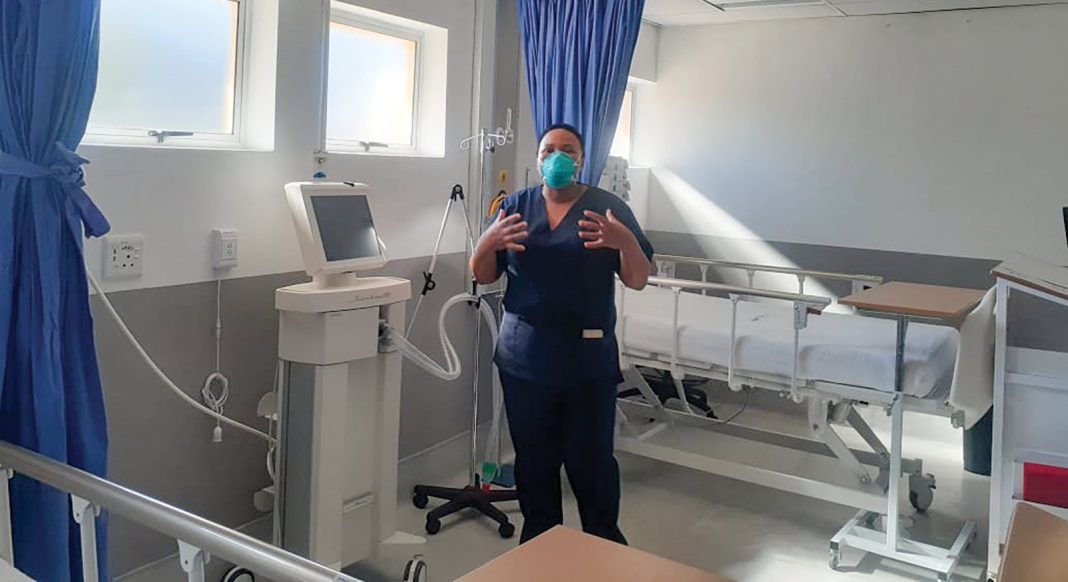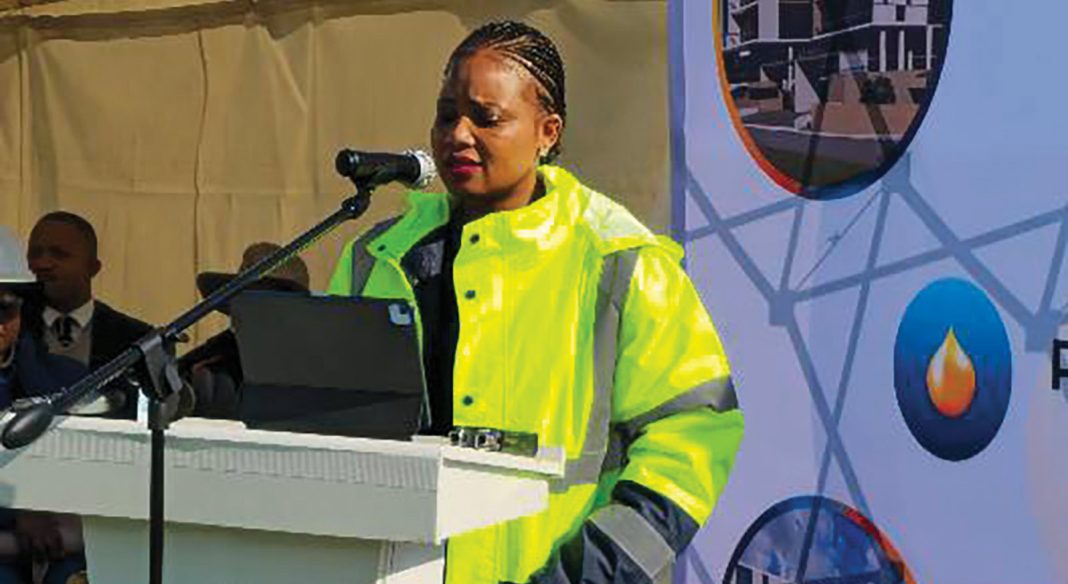As multidrug-resistant tuberculosis (MDR-TB) cuts swathes among victims, a glimmer of hope has emerged in the form of a new and cheaper treatment regimen that promises to transform the lives of patients, with minimal side effects.
The Expanding New Drug Market for Tuberculosis (endTB) clinical trial is a beacon of innovation in the dark fight against drug-resistant tuberculosis, a deadly disease that has long defied effective treatment.
The endTB trial was conducted by Médecins Sans Frontières (MSF), Partners In Health (PIH) and Interactive Research and Development (IRD), funded by Unitaid in 2017.
Lesotho joined six other countries; Georgia, India, Kazakhstan, Pakistan, Peru and South Africa in the endTB trial, enrolling 83 patients in this global effort.
Together, these seven diverse nations provided a total of 754 patients who had previous endured the harsh radialities of conventional MDR-TB treatment.
The World Health Organisation (WHO) defines MDR/RR-TB as a disease caused by a TB bacterium that is resistant to rifampicin, one of the most powerful first-line antibiotics, and sometime resistant to isoniazid.
The organisation highlights that MDR-TB remains a public health crisis and a global health security threat.
“MDR-TB is treatable and curable using second-line drugs. However, these second-line treatment options require expensive and toxic medications. Roughly half a million people fall sick with MDR/RR-TB each year, and many die from it,” the WHO said.
In 2022, TB was the world’s second leading cause of death from a single infectious agent, after coronavirus disease (COVID-19), and caused almost twice as many deaths as HIV/AIDS.
Leading the team of experts, MDR-TB senior medical officer, Dr Kunda Kwabisha Mikanda last week presented the findings of the ground-breaking study, heralding the potential impact of the new treatment regimen.
“For far too long, MDR-TB has loomed as a formidable threat with limited, poorly tolerated treatment options, but today, we unveil evidence for multiple innovative all-oral, shortened regimens that will allow patient-centred, individualised treatment of MDR-TB.
“This marks a pivotal moment in the fight against a disease that has plagued vulnerable populations worldwide. True access to these new treatment options depends on removing all barriers to timely and high-quality care.
“The trial results could address a major barrier to care for many people and the endTB consortium will continue to advocate to improve access and affordability to quality TB care,” Dr Mikanda said.
He noted that, once approved by the World Health Organisation (WHO), the endTB clinical trial would overtake the current state whereby patients worldwide are still treated with conventional treatment that take a maximum of two years.
According to Dr Mikanda, the old treatment has been proven to be ineffective, with only a 59 percent treatment success rate in 2018.
In addition, he indicated that with the old regimen, the patients swallow up to 14,000 pills during the period of the treatment, that is 20 pills per a day within two years.
“Besides being extremely expensive, the medication is also linked to terrible side effects such as psychosis, permanent deafness and kidney failure. Not only that, but a patient also has to get painful injections for six months.
“Patients undergoing this treatment are also not able to carry on their daily duties.
“To address these challenges, the endTB trial was born, with the aim of trying to find a better, shorter and lesser toxic drugs that can help MDR-TB patients to live without injections and with less side effects,” Dr Mikanda said.
According to Dr Mikanda, endTB trial evaluated five experimental regimens for MDR/RR-TB against the standard of care in two distinct analysis populations. The clinical trial results revealed evidence to support the use of four new, improved regimens to treat multi-drug resistant tuberculosis or rifampicin resistant tuberculosis (MDR/RR-TB).
“EndTB regimens one, two, and three demonstrated non-inferiority to the control in both primary analysis populations, establishing their success in treating MDR-TB. These regimens achieved favourable outcomes in 89.0 percent, 90.4 percent and 85.2 percent of participants, respectfully,” he pointed out.
He added that regimen five also showed a strong treatment response at 85.6 percent and was non-inferior to the control’s 80.7 percent in one of the primary analysis populations.
While consistent results in both populations are needed to formally establish non-inferiority, he said, regimen five holds promise as an alternative for patients unable to receive other recommended treatments.
The battle against MDR-TB, along with other communicable diseases, remains a stubborn hurdle in the race to achieve the United Nation’s Sustainable Development Goal 3 – ensuing healthy lives and well-being for all by 20230.
In the face of these urgent global health challenges, Lesotho’s participation in the endTB trial exemplifies a bold commitment to tackling MDR-TB and its crippling impact on communities.
Since 2006, a social justice organisation that responds to the moral imperative to provide high-quality health care globally to those who need it most, Partners In Health has supported the government’s fight against TB.
The case finding has increased from 32 percent in 2020 to 47 percent in 2023 but needs to almost double to reach national and global targets for ending TB by 2030. Studies further show that TB kills 1,3 million people per year in the world.
While TB incidence in Lesotho has dropped by 13 percent to 661 cases per every 100 000 people in the past decade, studies show that the country still has one of the highest incidences in the world.
In response to Lesotho’s high prevalence of MDR-TB, in 2007 Partners in Health launched the country’s first treatment, care and support program for MDR-TB and extensively drug-resistant TB (XDR-TB) and even more severe strain of the deadly disease.
PIH executive director, Dr Melino Ndayizigiye, says the organisation incurs patients’ emerging expenses ranging from transportation to medical services expenses.
Dr Ndayizigiye says since TB infects poor people mostly, PIH also pledges and provides funding towards groceries, as quality nutrition is regarded a key mobiliser of medical functions.
The national TB programme is based at PIH supported Botšabelo MDR-TB Hospital, the country’s only hospital for people with an advanced form of tuberculosis called MDR-TB based, which is resistant to some, if not all, drugs for treatment. The hospital based in Maseru was started operating in 2007.
“PIH’s TB outreach programmes offer resources, screening, and health services to families and communities in hard-to-reach districts of Lesotho.
“The programmes also connect people to lifesaving treatment and care, conducting contact tracing, and providing preventative TB therapy to people who have been in contact with TB patients.
“Moreover, clinicians and staff on the hospital campus provide lifesaving care and support for patients, who very often are battling severe TB along with HIV, hypertension or other diseases such as COVID-19,” he added.
Intensive Care Unit (ICU) nurse manager at Botšabelo hospital, Mpho Kholoanyane, said with the ICU department, they are able to provide care to patients who need level two and three care.
She indicated that despite challenges, the hospital has achieved an 80 percent treatment success rate with MDR-TB patients since its establishment.
This glimmer of hope is buoyed by the promise of the endTB trial which offers a path towards more effective and tolerate treatment regimes.
Kholoanyane said the presence of the country’s only ICU ward that occupies eight patients dependent on mechanical and medical ventilation have saved many Basotho’s lives who were at stake.
Nurse in charge of the hospital, ‘Matšepo Toti says the hospital has expanded over the past years to support care for COVID-19 patients across the country, through the only oxygen plant in the country supplying about 20 health facilities, while also improving care for TB patients.
Beyond that, at the hospital, the commitment to patient care extends beyond the confines of the medical facility, since they recognise the disproportionate impact of MDR-TB on low-income communities.
As a result, she says, they offer food, transport and housing assistance for MDR-TB patients even after they have been discharged from the hospital, ensuring that socio-economic barriers do not hinder recovery.
“MDR-TB affects the most vulnerable members of our society. Therefore, we understand that treatment is not just about medication but also about ensuring that patients have access to basic needs such as food, shelter and transportation.
“Our commitment to patients does not end when they are discharged, we continue to support them through their recovery, even after they left our doors,” Toti noted.









